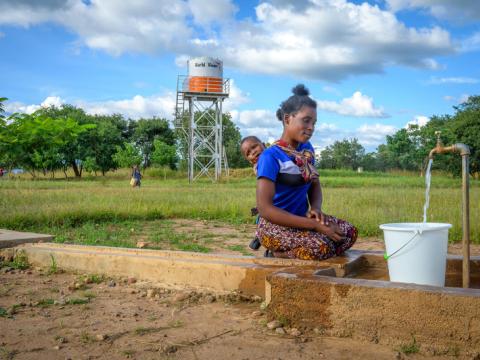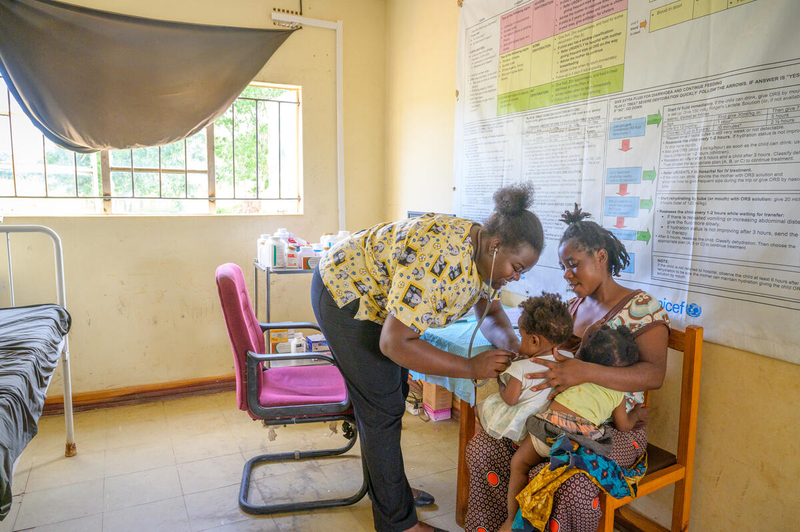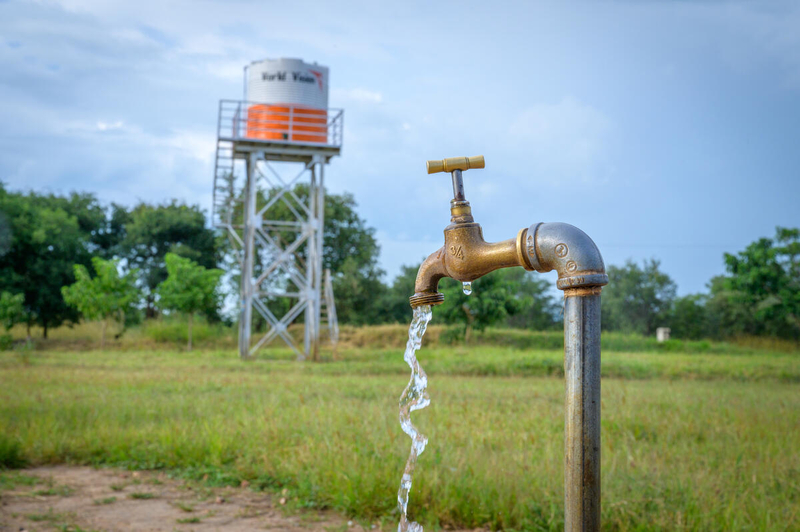Clean Water Transforms Health Service Delivery at Bunda Bunda Rural Health Post in Eastern Zambia.

Bunda Bunda Health Post is overseen by Agnes Mweemba, a dedicated 30-year-old nurse with extensive experience at the facility, having started her service there in April 2017. Over the years, she has witnessed significant changes that have improved the quality of care and the working environment.
Like many rural health facilities in Zambia, Bunda Bunda faced numerous challenges before the upgrades. These included a lack of running water, limited privacy during childbirth, inadequate sanitation facilities, shortages of medical supplies and equipment, and difficult transportation networks. Agnes explains, “Most rural clinics here struggle with basic things like water and space. Sometimes, we don’t have enough supplies, and it’s hard to give patients the care they deserve.” She adds, “The roads are rough, especially during the rainy season, which makes it hard for patients to reach us and for us to get supplies from nearby towns.”
When Agnes first arrived, the clinic lacked running water, relying instead on two handwashing buckets. After each patient, she had to run to one of these buckets to wash her hands, disrupting workflow and delaying care. Medical instruments required cleaning at the borehole, which meant trips outside the clinic. Agnes recalls, “It was frustrating, sometimes, I’d have to leave a patient waiting just to fetch water or clean instruments. It felt like we were working in a place that didn’t support proper healthcare.”

The issue of privacy during childbirth was equally problematic. The existing building offered little to no privacy, often exposing women giving birth to curious onlookers. Post-delivery, women depended on others to fetch water, crossing the grounds to the borehole if no help was available. Agnes reflects, “Women were embarrassed, and some even felt humiliated because everyone could see what was happening. It was not the respectful environment they deserve.”
In 2021, thanks to support from World Vision, the clinic underwent a major transformation. A new maternity annex was built, equipped with essential facilities inside a single building. The annex includes a dedicated room for ante- and post-natal care, a private delivery room at the back for dignity and confidentiality, and modern showers and toilets—eliminating the need to go outside for water. Agnes says, “Having everything in one place has made a huge difference. Women feel more comfortable, and I can focus more on providing care.”
Despite these improvements, Agnes acknowledges ongoing challenges. “While things are better now, we still face issues like occasional shortages of supplies and the need for more trained staff,” she admits. “But the support we’ve received has motivated us. Knowing that the community and partners like World Vision are investing in us makes a big difference.”

These upgrades have not only enhanced maternal and patient care but also boosted staff morale. “I’ve got everything available,” says Nurse Agnes. “It’s a motivation to do my work. The environment itself is motivating.” She emphasizes, “When you work in a good environment, you want to do your best for the community.”
Violet Banda, age 24, gave birth to Daliso 11 months ago. He was one of the first babies born in the new maternity ward. She’s had two children. The other one is 6 years old and was born in the maternity ward. She describes her experience. She carried a bucket of water with her from home since there was no running water in the clinic at the time. Once she arrived at the clinic she says, “The room was small and people would peep through the window to see what was happening.”
Challenges faced by rural health facilities in Zambia such as Bunda Bunda are common across many regions. These include inadequate infrastructure, limited access to clean water and sanitation, shortages of medical supplies and trained staff, poor transportation networks, and insufficient funding. Agnes notes, “We need more support and resources to keep improving. Without them, it’s hard to reach the standards we want for our patients.” She concludes, “But with continued effort and support, I believe we can make a real difference in the lives of our people.”